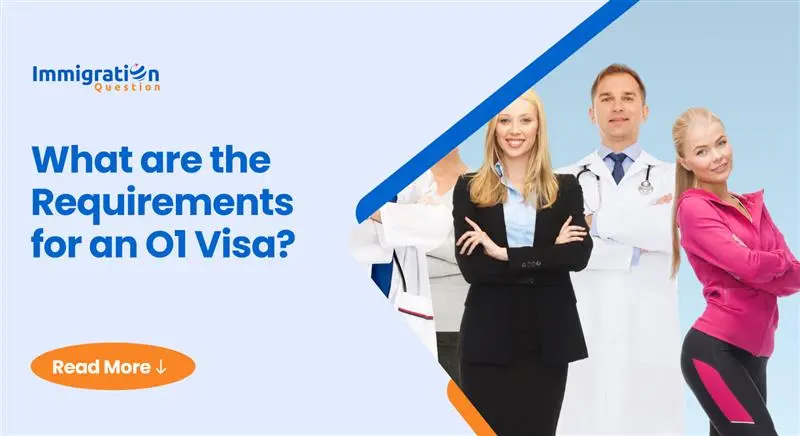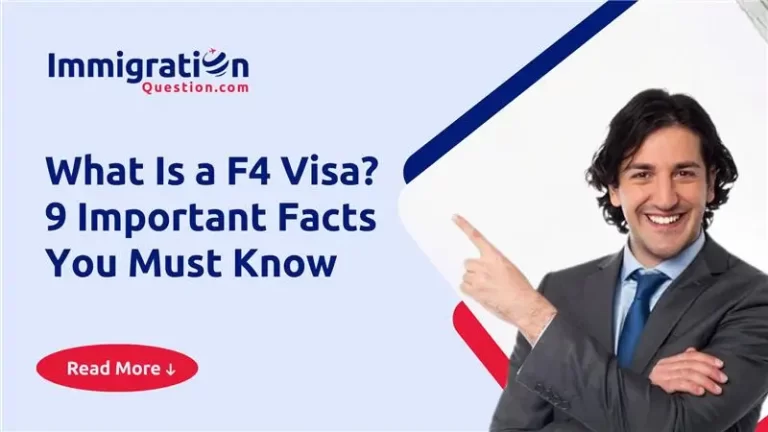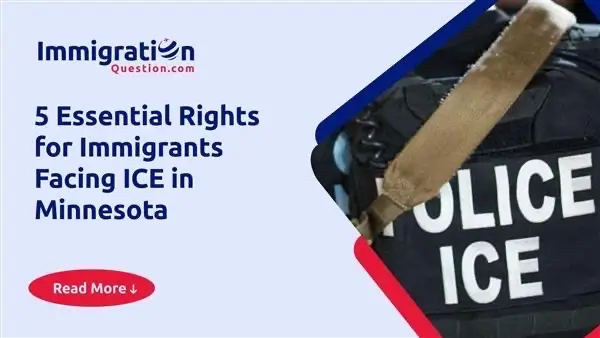Immigration Question (IMQ) is a platform that connects individuals with experienced immigration attorneys. If you are exploring opportunities to work in the United States based on your extraordinary skills, the O-1 nonimmigrant `Visa may be your best route.
This guide includes everything you need to know about this unique nonimmigrant visa, from eligibility to the application process and how an Immigration Question attorney can support your journey.
What is the O-1 Visa?
The O-1 nonimmigrant visa is for individuals with extraordinary abilities in the sciences, arts, education, business, or athletics. It is also open to those with a demonstrated record of exceptional achievement in the motion picture or television industry.
In essence, the O-1 visa is for individuals at the very top of their field, recognized nationally or internationally for their accomplishments.
Categories of O-1 Visa:
- O-1A: For those with extraordinary ability in sciences, education, business, or athletics.
- O-1B: For those with extraordinary ability in the arts or extraordinary achievement in the motion picture or television industry.
Who Qualifies for the O-1 Visa?
To qualify, an applicant must prove:
- Sustained national or international acclaim
- They are coming to the U.S. temporarily to continue work in their area of extraordinary ability.
What Counts as Extraordinary Ability?
- Science, Education, Business, or Athletics (O-1A): You must be in the top small percentage of your field.
- Arts (O-1B): You must show distinction and a high level of achievement recognized in your field.
- Motion Picture or Television: You must demonstrate extraordinary achievement, evidenced by critical or commercial success.
An Immigration Question lawyer can help you build a strong petition by identifying the proper evidence and supporting documents.
What are the Benefits of the O-1 Visa?
- Unlimited Extensions: O-1 visas can be renewed indefinitely in one-year increments.
- Work Flexibility: Holders can work for multiple employers or even for themselves.
- No Annual Cap: You can apply anytime. Unlike some other visas, there’s no lottery or limit.
Working with an Immigration Question attorney ensures that you make the most of these benefits.
How do you Apply for an O-1 Visa?
A U.S. employer or agent must file Form I-129 on your behalf. Filing this at least 45 days before your employment begins is recommended. However, petitions cannot be submitted more than six months before the intended start date.
What are the Required Documents for O-1 Visa?
- Advisory Letter: A peer group or labor organization must verify your qualifications.
- Employment Contract: A written or verbal agreement outlining your job offer.
- Description of the Work: Includes start/end dates and event itinerary.
- Evidence of Extraordinary Ability: Awards, recognition, publications, memberships, or salary details.
An Immigration Question lawyer can help gather and organize your documents to meet USCIS standards and deadlines.
Supporting Evidence for O-1A Applicants
Applicants need at least three of the following:
- Membership in associations requiring outstanding achievement
- National/international awards
- Employment in a critical capacity for prestigious organizations
- Publications in major media
- High remuneration
- Significant contributions to your field
- Judging the work of others
Supporting Evidence for O-1B Applicants
You may submit at least three of the following:
- Testimonials from experts in your field
- Leading roles in respected productions or companies
- Reviews or media coverage of your work
- Commercial success proof
- High compensation
- Participation in significant productions or events
Increase your chances of approval by getting an Immigration Question attorney to review your portfolio before you submit it.
What is the Period of Stay for an O-1 Visa?
- Initial Stay: Up to 3 years
- Extensions: In 1-year increments based on the duration of the event or activity
- Grace Period: 10 days before and after the visa period
To extend your stay, your employer must file another Form I-129, including Form I-94, and a statement explaining why the extension is necessary.
Can Family Members Accompany O-1 Visa Holders?
Spouses and children under 21 can apply for an O-3 visa, allowing them to live in the U.S. They cannot work but can study full or part-time.
There is also the O-2 visa for individuals assisting an O-1 visa holder, such as coaches, assistants, or technical staff.
Frequently Asked Questions About O-1 Visa
-
Does the O-1 nonimmigrant Visa Lead to a Green Card?
Not directly, but it is a dual intent visa, meaning you can pursue a green card while on O-1 status. Many people use the O-1 as a stepping stone toward permanent residence.
-
Can an O-1 nonimmigrant Visa Holder Extend Their Stay?
O-1 visa holders can extend their stay by one-year increments. Your employer or agent must file Form I-129 again, along with supporting documents to justify the extension.
-
Can the Beneficiary Bring Their Family?
Spouses and children under 21 can accompany you on an O-3 visa, but they can’t work. They can, however, attend school in the U.S.
-
Is an O-1 nonimmigrant visa Better Than an H-1B visa?
In some ways, the O-1 nonimmigrant visa is better than H-1B, such as:
- No lottery or cap: Unlike the H-1B, there is no annual limit.
- Apply anytime: No need to wait for a specific window.
- Unlimited renewals: Stay as long as you qualify.
Why Work with an Immigration Question Attorney?
Applying for an O-1 visa is not easy. Through the Immigration Question platform, you can find an Immigration Question lawyer who understands the O-1 nonimmigrant visa requirements and USCIS expectations. These professionals can help you build a compelling petition, submit it correctly, and support you if there are requests for evidence (RFEs) or delays.
Visit the IMQ website to connect with an Immigration Question attorney today and begin your O-1 journey.











